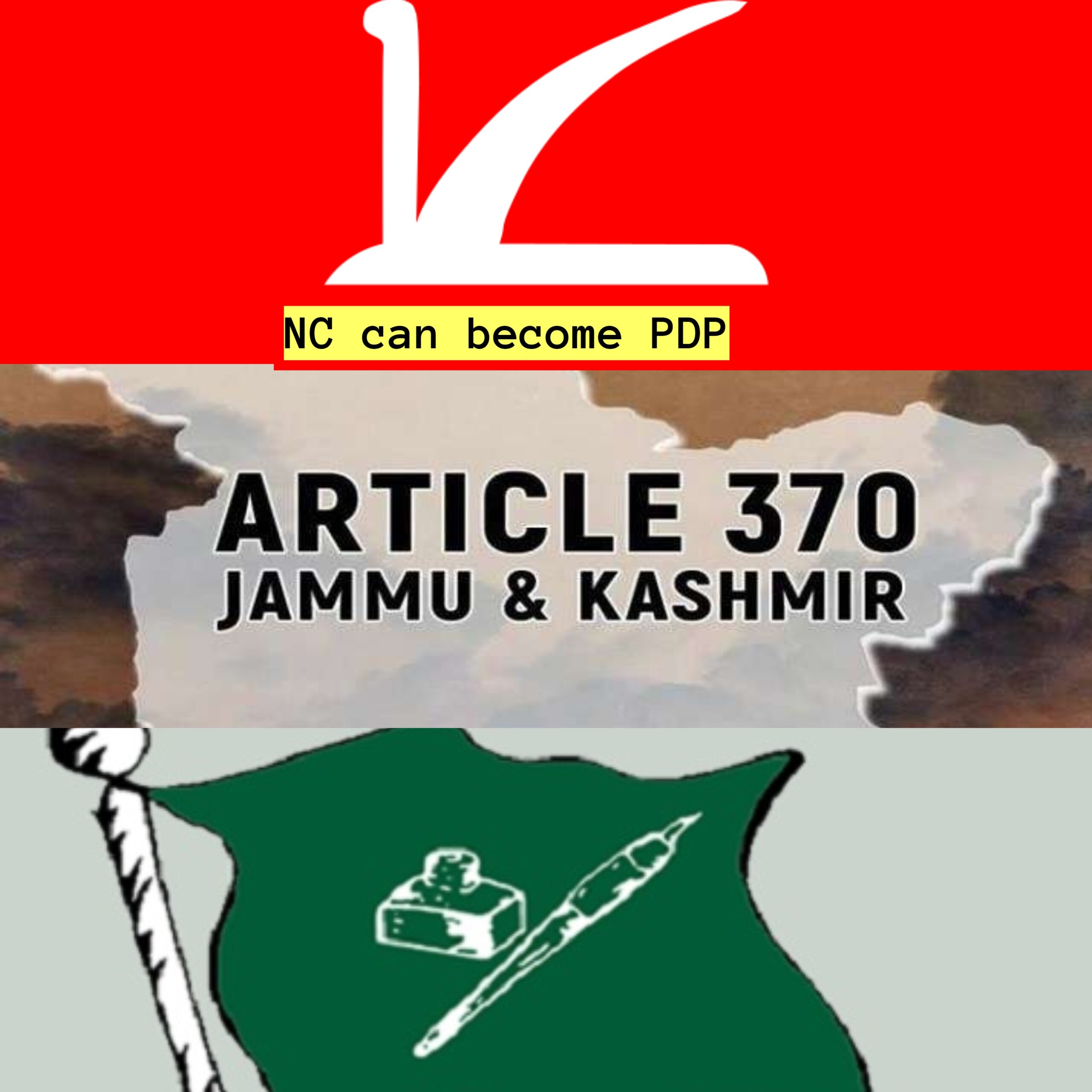The recent assembly election results in Jammu and Kashmir have brought the National Conference (NC) back to power, securing a significant majority in the Kashmir region. With 42 seats, alongside its alliance partner Congress, which won 6 seats, NC has emerged as the dominant political force in the Union Territory. This victory, however, presents a unique set of challenges for NC and its leader, Omar Abdullah, particularly given the high expectations tied to their key promises of restoring Article 370, Article 35A, and statehood.
A Mandate Based on Dignity, Not Development
In this election, the people of Jammu and Kashmir largely rejected the development-driven narrative propagated by the Bharatiya Janata Party (BJP) and other like-minded parties. Instead, they rallied behind NC, which campaigned on promises of restoring autonomy and dignity through the reinstatement of Article 370 and 35A. These articles were central to the special status of Jammu and Kashmir before being abrogated by the BJP-led central government in 2019.
NC’s electoral success, particularly in Kashmir, signals a deep-seated desire among the electorate to reclaim the political identity and autonomy they feel has been eroded. Voters chose NC, not just for its governance track record, but for the hope it offered in reversing the central government’s actions. However, this is where the challenges begin.
The Reality: A Tough Road Ahead for NC
While NC has managed to mobilize significant support on the promise of restoring autonomy, the path to fulfilling these promises is fraught with challenges—primarily because the political and legal framework of Jammu and Kashmir as a Union Territory leaves little room for regional parties to exert meaningful influence on such issues.
NC’s key promises—bringing back Article 370 and 35A and restoring statehood—are constitutional matters that require the approval of the central government. With the BJP firmly in power at the center and the Lieutenant Governor (LG) appointed by the central government, NC’s ability to act independently is severely constrained. The governance model for Jammu and Kashmir, as a Union Territory, operates similarly to that of Delhi, where key decisions are ultimately controlled by the central government.
This political reality makes it highly improbable for NC to deliver on its promises, at least in the near future. The restoration of Article 370 and 35A would require significant legal and political maneuvering, and with the BJP being the architect of their abrogation, there is little chance of cooperation from the center.
The Risk of PDP’s Fate: History Repeating Itself?
The People’s Democratic Party (PDP), once a strong contender in Jammu and Kashmir politics, saw its decline after aligning with the BJP in 2014. This alliance, seen as a betrayal by its core voters, particularly in Kashmir, has significantly eroded its base, as reflected in its dismal performance in the recent elections, securing only three seats.
NC could face a similar fate if it fails to deliver on its promises. The party’s majority rests on the belief that it will restore Jammu and Kashmir’s special status. If, over the course of its tenure, NC is unable to fulfill these pledges, voters may turn against them in future elections, just as they did with PDP. The risk for NC is not just electoral defeat, but the loss of its identity as the party of autonomy and dignity.
Omar Abdullah’s recent statement that he will “keep the Article 370 issue alive” reflects the challenge ahead. If NC is unable to tangibly deliver, repeating the same promises in the next election may not suffice. Voters, particularly in Kashmir, are likely to grow weary of what they perceive as empty rhetoric.
The Future of Jammu and Kashmir’s Politics
Should NC fail to meet voter expectations, a political vacuum could emerge, offering opportunities for smaller regional parties like the Apni Party, People’s Conference, and Awami Ittehad Party (AIP). These parties, though smaller in stature, may capitalize on disillusionment with NC’s leadership, especially if they offer a pragmatic approach to governance and development.
Development-oriented parties, which failed to resonate with voters this time, could see a resurgence if NC’s promises of autonomy and statehood fail to materialize. This could also lead to the rise of newer political movements that address the immediate needs of the people, such as infrastructure, employment, and social welfare, rather than focusing on issues of autonomy and political identity.
Conclusion: A Ticking Clock for NC
National Conference has a limited window to prove its worth to the people of Jammu and Kashmir. The emotional appeal of Article 370 and statehood may have worked this time, but in the next election, it is unlikely that voters will be satisfied with symbolic gestures or unfulfilled promises. Omar Abdullah and his party face the tough task of balancing political rhetoric with the harsh realities of governance under a Union Territory framework.
Failing to deliver could see NC facing the same wrath that befell PDP, and the future of Jammu and Kashmir’s politics may once again shift toward development and pragmatic governance rather than autonomy and identity. The stakes for NC could not be higher: the next election may well be the one that determines whether the party remains a dominant force in Jammu and Kashmir or fades into political irrelevance.


